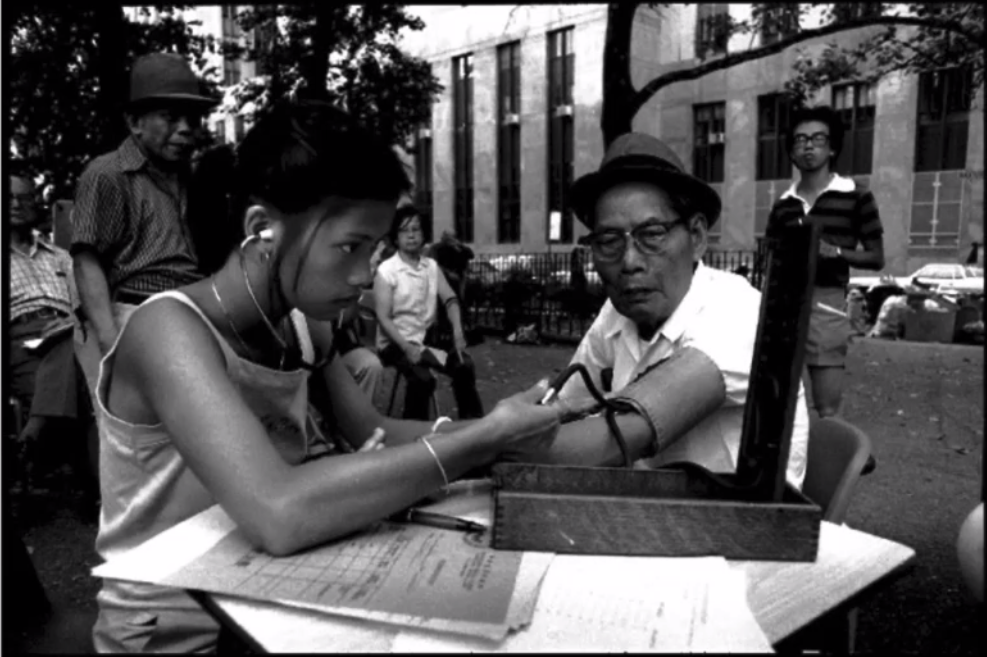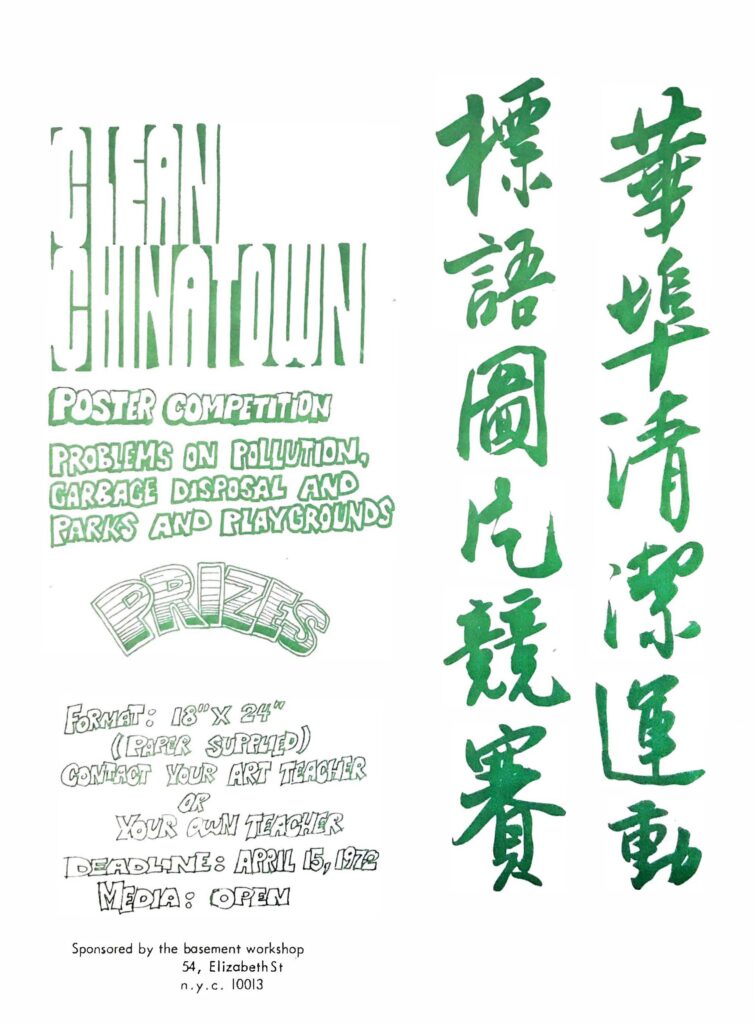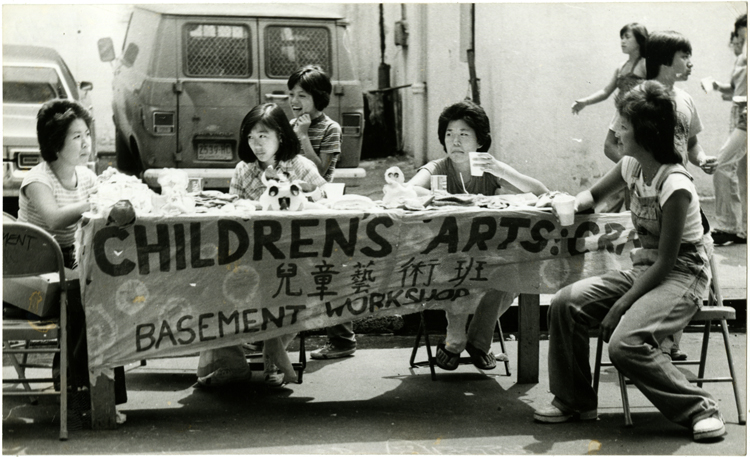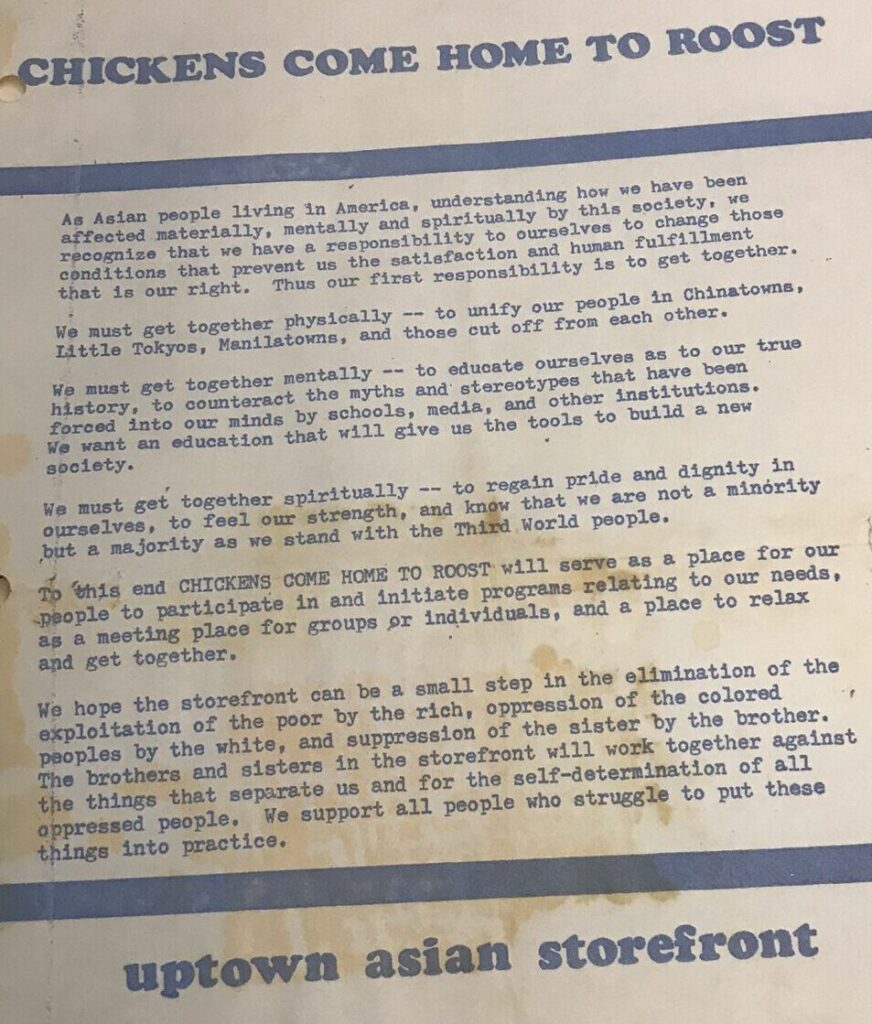Collective organizing efforts by members of the Basement Workshop helped usher in a culture of community care. Young Japanese Americans who frequented the New York Buddhist Church with their families Uptown would made their way downtown to the Chinatown neighborhood, seeking out activities that would allow them to further develop Asian American consciousness.
Over a week in August 1971, Corky Lee, Thomas Tam, and Liz Young were among several key young Asian Americans who sought to provide healthcare access to Chinatown residents. The First Chinatown Health Fair trained volunteers to staff health screening booths, take blood samples, and educate residents on critical healthcare information. The organizing group of the fair recruited volunteers by approaching Asian student organizations from local universities. Many of these volunteers who were not local to the Chinatown community continued their efforts after the week’s events, eventually becoming members of the Basement Workshop.

In 1972, the Basement Workshop won seed grant funding to launch a program called Clean Chinatown that would encourage and educate the Chinatown community on environmental issues.
Targeting Chinatown youth was a primary component of the Basement’s work with Clean Chinatown, and with many other programs meant for cultivating a safe community in the city. Including an environmental poster competition, the project also aimed to improve physical spaces in the neighborhood with clean-up campaigns and workshops on built street furniture.


Outside of Chinatown, members of Basement often frequented a liberated storefront on the Upper West Side deemed the Uptown Asian Storefront. This storefront housed Chickens Come Home to Roost, a gathering place for activists and artists. A Grain of Sand performed in its space and the storefront held gatherings meant to cultivate Third World solidarity with Latinx and Black community members.
